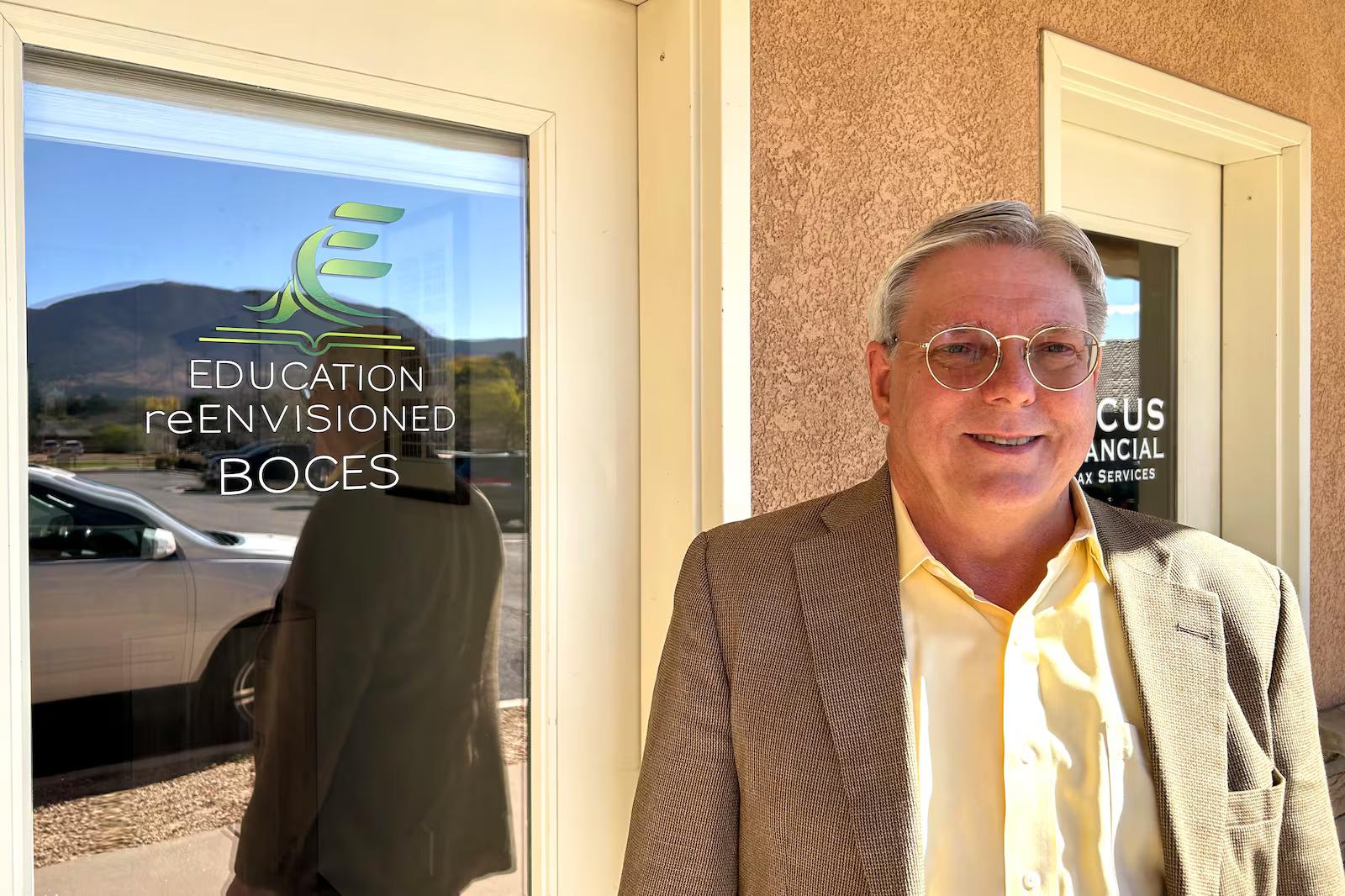In the past two years people across the state have founded hundreds of medical marijuana businesses. It’s not an industry for the faint of heart though -- hefty state regulations, possible federal prosecution, stiff competition … and they do it all without some of the most basic financial tools other small businesses rely on. Colorado Public Radio’s Megan Verlee has the story. Here's a transcript of her report:
Reporter Megan Verlee: Behind the counter of the Tender Healing Care marijuana center in Denver, owner Barbara Visher is filling medicine bottles for an afternoon customer.
Barbara Visher: "Buds: large? small?"
Customer: "Um, we’ll go big buds with that one... No, small..."
Reporter: Visher plucks product out of a big glass jar. The countertop she’s working on is decorated with stickers asking customers “Got THC?” and advertising various marijuana products. But in between them are some logos familiar to any shopper: Visa and Mastercard.
Visher: "Would you like a copy of your credit card receipt?"
Customer: "Yes please."
Reporter: Even as Visher swipes that card, she’s worrying about how much longer she’ll be able to take plastic. The bank she was using for credit card services recently cancelled all its medical marijuana business accounts, leaving her scrambling to switch providers. Visher’s had similar experiences trying to get a bank account for her business.
Visher: "From the day we opened in 2009 we had an original bank and we had a back-up bank. And so we have scrolled through five banks, always knowing that as soon as one closed we needed to go ahead an open a second so that when we were closed we wouldn’t have trouble opening up a new one."
Reporter: There’s a reason so many banks have been getting cold feet about holding medical marijuana money --it’s against the law for them to work with an industry the federal government considers illegal. Jenifer Waller is with the Colorado Banking Association.
Jenifer Waller: "Some of our members have actually been told to go ahead and close those accounts. Others have been cautioned heavily against opening them."
Reporter: Waller says that while federal regulators have made it clear that banks shouldn’t work with the medical marijuana industry, so far they haven’t put that policy in writing. It’s a frustrating situation for banks.
Waller: "Give us guidance as to exactly what we can and can’t do. And give us something in writing that we can share with our potential customers and existing customers. If you know what the rules are, we can all know how to play and abide within the law."
Reporter: At least a few banks in Colorado have decided it’s worth the risk to offer basic services to medical marijuana centers. They’re opening up checking and savings accounts, but not offering the loans and credit that most small businesses rely on. And they’re definitely publicity-shy. None of the banks nor the credit union reportedly working with the industry would agree to speak for this story. Colorado Congressman Jared Polis wants to bring these institutions out of the shadows. He’s introduced a bill allowing banks to work with the industry in states with medical marijuana.
JARED POLIS: "Given that Colorado has moved in the direction of legalization and has a regulatory scheme for these businesses, I think it’s important that the federal government make sure that those are accountable and track-able through our regular financial institutions."
Reporter: While Polis’ bill would make the federal government more friendly to an illegal substance, he says the change will actually help with law and order.
Polis: "When you don’t allow normal banking services, it leads to a cash business. It’s likely to pull back in that very criminal element that we hope to eliminate."
Reporter: Banking isn’t the only area where Polis is trying to help the industry; he’s got another bill to clarify how they do their taxes, too. The IRS is currently auditing several Colorado dispensaries, arguing over which, if any, of the usual business deductions they can take. CPA Jim Marty represents one of those centers and argues it should be allowed to deduct marijuana growing equipment as an expense. He says what happens with the IRS could have a major impact on the industry’s viability.
Jim Marty: "I have clients that have spent over a million dollars on their garden. Many have spent in the hundreds of thousands. So if they don’t allow depreciation to be deducted on the gardens, they have substantially increased the the cost of capital to this industry, ands this is an industry starved for capital because they can’t really get a bank loan."
Reporter: Marty says almost all of the medical marijuana businesses he works for had losses last year, if the IRS lets them take business deductions. If it decides they can’t, they’ll owe the government money. One more expense for the industry. Back at the Tender Healing Care dispensary, Barbara Visher says that as costs have mounted, she’s hearing a lot of second thoughts from other business owners.
Visher: "Would you do it again two years later? I suspect that a good portion of the people involved or have recently got out or are thinking of getting out, would tell you 'no.' "
Reporter: For Visher, though, she says failure is not an option. She and her brother put all their savings into their center.
Visher: "We are lucky to be standing here today, and all we can say is, with a little bit of luck and some good business practices, we hope to be standing next year."
Reporter: Good businesses practices may not be enough when it comes to an industry that appears to be increasingly cut off from the normal financial tools most companies rely on.









